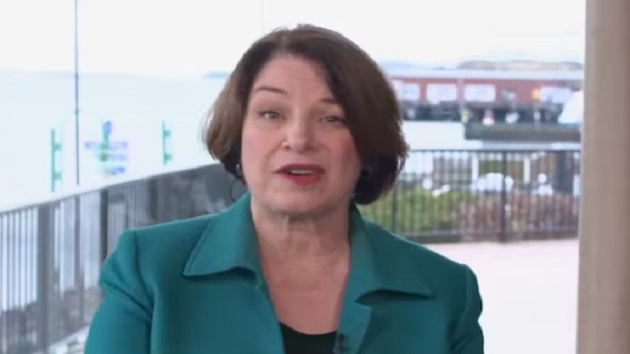As acceptance rates decline, students bill themselves as admissions experts
Written by ABC Audio. All rights reserved. on July 1, 2023

(NEW YORK) — Kelsey Hoskin charges students $675 for an hour-long, private college admissions strategy Zoom session. And students are paying.
Unlike many traditional private college admissions consultants, Hoskin hasn’t served as an admissions officer before. She’s a recent alumna of Harvard University and a current medical student at the University of Michigan.
Hoskin, who has 127.7k TikTok followers under her account @harvardhoneyyy as of writing, says that during the past admissions cycle, at least two of her students were accepted into each of the eight Ivy Leagues.
As acceptance rates at selective universities seemingly hit record lows each year, anxiety over the college admissions process only continues to increase, inspiring students to turn to fellow students for advice. For the Class of 2027, Yale University reported it’s largest-ever pool of applicants, with only a 4.35% acceptance rate, the lowest in its history.
The college admissions landscape is also constantly changing, with the Supreme Court setting new limits on affirmative action on Thursday.
The prices charged by student college admissions consultants vary, though many of them are cheaper than private consultants with decades of experience. Influencers like Hoskin, who have access to hundreds of thousands of social media followers, can charge more than students promoting services just within their local communities.
Hoskin frequently posts screenshots of her acceptance letters from elite universities on TikTok. However, she doesn’t believe that any student attending these universities should necessarily be selling consulting services.
“THANK YOU SO SO SO SO MUCH FOR ALL OF YOUR HELP, I SERIOUSLY COULDNT HAVE DONE IT WITHOUT YOUR HELP!!!” reads one text posted by Hoskin.
According to Hoskin, her unique credibility comes from getting into every Ivy she applied to, serving as an alumni interviewer for Harvard and partnering with her high school back during her Harvard days to present a webinar on college admissions.
“I think I have more credibility possibly than an admissions officer,” Hoskin said. “A past admissions officer from Brown [University] can tell you what Brown’s looking for. But I figured out what Harvard, Cornell [University], Dartmouth [College], all these schools I applied to, were looking for.”
Becky Munsterer Sabky is a former admissions director at Dartmouth and the author of “Valedictorians at the Gate,” shares she’s witnessed a lot of people from various ages and backgrounds sell college consulting services, including students.
“When we worked in college admissions, when we read applications, we really approached it as every person should have their individual stamp on this application,” Sabky said. “I think if anyone figures out how to secure a person’s place into a college, that’s amazing, because college is a business, and these are difficult business decisions.”
Andrew Liu, a rising sophomore at the Massachusetts Institute of Technology, purchased an essay editing service from a company run by current MIT students and recent alumni. After the consultant read over one of his required short answer essays, Liu felt the feedback was “not that helpful” and didn’t purchase more services.
Liu, who was a part of the USA Astronomy and Astrophysics Team in high school, credits his eventual acceptance largely to his academic performance and extracurriculars, not his essays.
“If I had to go back and do it again, I don’t think I would have needed to purchase any extraneous essay help,” Liu said.
And even though his sister, a Northwestern University alumna, started an essay editing business with her friends during college, Liu hasn’t done the same. He says he doesn’t feel qualified to be giving essay advice. According to Liu, receiving an acceptance letter isn’t enough; instead, he thinks consultants should have experience in writing, like his sister did.
Liu has also witnessed his peers present online webinars to their local communities where they share their college admission processes. He finds the practice “slimy,” “very weird” and that students end up “basically just flexing in front of a bunch of parents.”
What Liu learned from his admissions cycle was that the most important thing was to stay true to himself and his passions, an idea that Sabky agrees with.
“I think it’s okay to ask for help,” Sabky said. “But I don’t think anyone offering services because they feel like they could package you better in an inauthentic way is moral.”
Copyright © 2023, ABC Audio. All rights reserved.






